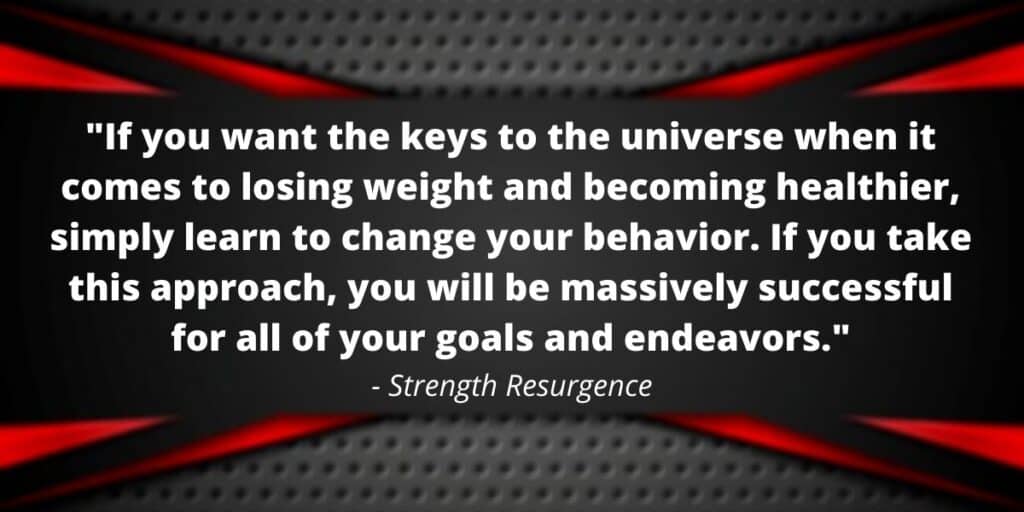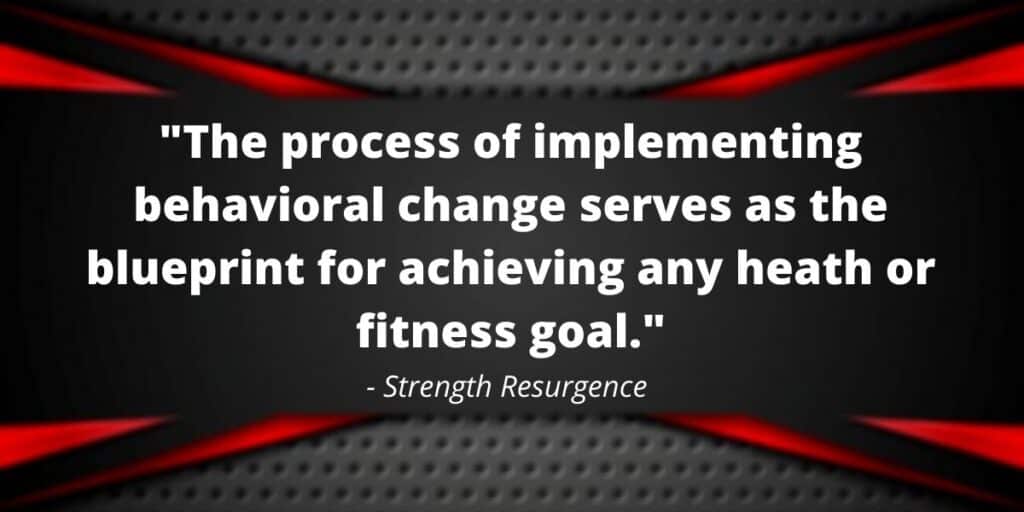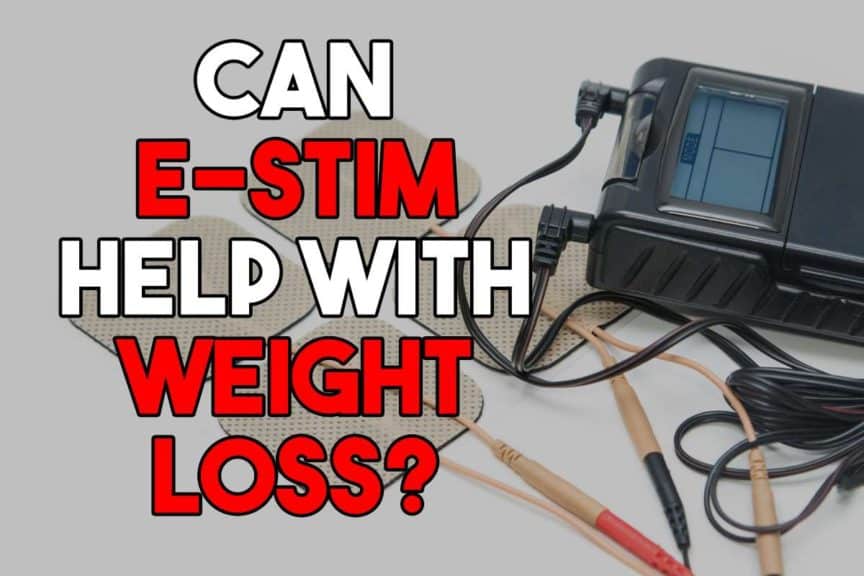“Chop your own wood and it will warm you twice.” – Henry Ford
Many people wonder if EMS (Electrical Muscle Stimulation) (also referred to as NMES – Neuromuscular Electrical Stimulation) can help them lose weight. We’ve all seen the claims on TV, on websites and plenty of other places: just turn the device on and let the machine do all the work, right? Not so fast. Not only does this not work in the slightest (and is thus a complete waste of your time), but it also cheats you out of what you already want even more in this life than just weight loss. Seriously.
Now, don’t get it twisted. EMS can be an incredibly powerful therapeutic adjunct for exercise recovery, injury rehabilitation, and movement re-training when used appropriately. Physical therapists such as myself use it with many of our patients and even on ourselves. But when it comes to using it strictly for weight loss…
EMS simply does not help with weight loss. This is not only supported by an abundance of scientific literature but also just by basic human physiology, so don’t waste your time. The good news is that there’s one specific reason why you wouldn’t want it to work, even if it actually did. If you want to know this reason as to why, keep reading this article.
As you read onward, keep in mind that EMS is often referred to NMES (Neuromuscular Electrical Stimulation). EMS and NMES are the exact same thing but just with different labels; they are one in the same.
Article contents (Quick links)
Click on any of the bulleted lines below if you’d like to instantly be taken to that particular section.
- Why you don’t want to rely on EMS to help you lose weight
- Don’t believe the lies: The evidence is overwhelming
- An example of why you don’t want EMS to help with your weight loss
- What the process of behavioral change will teach you
- The challenge of behavioral change is absolutely worth it
Related article: Can Physical Therapy Help Me Lose Weight?
Helpful Resource: Precision Nutrition (link takes you to their website) (Please note: I have an affiliation with Precision Nutrition and use any commissions I earn to offset the cost of running this website.)
Why you don’t want to rely on EMS to help you lose weight

The people who are most successful with weight loss in this world are the ones who realize that weight loss starts with behavioral change. Changing your behavior(s) is the fundamental prerequisite to making a successful change for any aspect of your health and fitness goals and there is no behavioral change when you rely on passive intervention (i.e. EMS/NMES).
If you want the keys to the universe when it comes to losing weight and becoming healthier, simply learn to change your behavior. If you take this approach, you will be massively successful for all of your goals and endeavors, because:
- Behavioral change addresses causes of problems, not the symptoms
- Behavioral change affords you the feeling of being in control and self-reliant
- Behavioral change lets you solve multiple problems, not just one
Don’t believe the lies: The evidence is overwhelming

Anyone who tells you (or pretends to show you through a late night infomercial) that you can lose weight through electrical stimulation of your muscles is just trying to steal your money. It’s brutal as to how many people out there prey on the desperate in order to take their money. But that’s just an unfortunate fact of life.
I’ve spent the last 15 or so years regularly hanging out (and working) with numerous exercise physiologists, friends with PhD’s in various realms of human physiology, and I myself have spent nearly a decade studying the human body and exercise science up to and through grad school. My friends and I absolutely love studying the marvelous human body and thus can sniff out bogus fitness claims rather quickly.
So the level of blatant absurdity that comes to mind for me when someone says that EMS can help you lose weight (on any sort of visually perceptible level) would likely be equivalent to the blatant absurdity you’d feel if someone told you that you could make four-million dollars an hour flipping burgers at the local burger joint if you “just work hard enough flipping those burgers.”
If you’re interested in learning how behavioral change can truly help with better diet and lifestyle habits, head on over to Precision Nutrition and check out their free resources (infographics, blog posts, etc.).
An example of why you don’t want EMS to help with your weight loss
I’m not even going to give you the scientific reasoning behind why EMS won’t help you lose weight. The evidence is simply overwhelming and laying out the basic scientific principles would be a waste of time; there are plenty of other blog posts out there that will discuss the scientific reasons as to why.
But what I AM going to give you is evidence as to how behavioral change makes all the difference in successful weight loss (more on that in a bit). First, let’s just start off with a practical reason as to why slapping some EMS over your midsection doesn’t work. Ready? Here we go:
The hypothetical situation
You want to lose weight. This means that you’ve routinely developed the habit of eating a surplus of food/energy (you didn’t just get overweight over night, after all). You have also likely developed the routine habit of not being as physically active as you should be.
So you’re constantly eating a bit too much on a regular basis (and perhaps unhealthy food) – a common behavior of many people. No judgement here. We’re all human. No judgement with the lack of movement here, either.
This isn’t about judgement, just rather about pointing some things out.
So you slap some EMS electrodes onto your stomach (or elsewhere on your body) and let’s pretend that after a few weeks of use, you’ve lost a couple of pounds. Problem here is that while you’re now a few pounds lighter, you haven’t changed any your behaviors that lead to you becoming overweight in the first place (routinely eating too much, eating unhealthy food, not being active enough, etc.).
Thus, you haven’t developed the ability, knowledge, skills, etc. that are all required to maintain a healthy body weight and live a healthier lifestyle. So the weight therefore comes back shortly after and the cycle of slapping on the EMS electrode pads again now never ends.
Now I can already hear you saying, “but Jim, I’d just keep using the electrical stimulation then if that were the case.” To which I would respond, “sure, but at the expense of never learning the the behavioral mindset that you can apply to any and all future challenges pertaining to your health and wellness.”

In other words, you would have learned how to rely on electrical stimulation for weight loss, but it’s not like you can rely on electrical current and electrode pads to solve the various other health problems that you could potentially face down the road due to poor diet and lack of nutrition.
BUT if you had learned how to change your behavior in regards to eating better and moving more, you would have realized that the implementation of the actual process for behavioral change is truly the blueprint on how to achieve ANY health and fitness goal.
Knowing how to change your behavior in regards to achieving your goals is basically like holding the keys to the universe when it comes to successfully achieving whatever it is that you want.
Relying solely on passive interventions to get you in shape, to make you “look better” or even feel better about yourself is simply a trap as it doesn’t elicit or foster any behavioral change on your part; you do not cultivate a mindset nor develop the subsequent abilities to develop consistent, sustainable actions that must be taken to overcome any sort of health or fitness-related goal.
Give a man a fish and he’ll eat for a day. Teach a man to fish and he’ll never starve again.
What the process of behavioral change will teach you
Change isn’t easy. But what change requires is in fact much more simple than we tend to realize. In other words, change isn’t easy, but it is a simple concept; change requires us to explore new ways of thinking AND acting. This process in and of itself is an active process – one that takes work.
But in that exact process, we develop a skill set that better helps us to understand how to overcome adversity and challenge. We ultimately develop a blueprint that can be superimposed over other health and fitness challenges…and even challenges in all other realms of life. And with that blueprint or framework we have the knowledge on how to proceed to effectively carry out the actions required to be successful in our pursuits.
The Transtheoretical model of change
The Transtheoretical model of change (link to Wikipedia article) is a great example of how behavioral change can help individuals lose weight. In a study of 577 moderately overweight or obese individuals who were given behavioral interventions through using the Transtheoretical model of behavioral change, the study revealed that individuals who utilized feedback from this behavioral model were able to make successful changes to improve healthy eating, exercise, managing stress and their bodyweight.
You can read the article for yourself here: Transtheoretical Model-based Multiple Behavior Intervention for Weight Management: Effectiveness on a Population Basis.
The challenge of behavioral change is absolutely worth it

You may think right now that you don’t care about any of this, that you’d rather say “I don’t care about this mindset, adversity garbage; I just want to lose weight.” But I can almost certainly promise you that if you knew how amazing it feels to earn something and then not only reap those rewards but also “crack the code” towards how to achieve success in any other endeavor, you’d certainly agree with me. Millions of others who have achieved their fitness goals (through consistent, sustainable actions) would tell you the same thing here.
I get that we all want instant results. I get (and know firsthand) that challenge is exhausting, time-intensive and filled with mistakes, highs and lows. But you become more powerful than you realize when you prove to yourself that its worth it. You will have a mindset and a toolbox of knowledge that you can then apply to all sorts of other challenges within your life.
So, ditch the idea of trying the bogus claim that EMS/NMES is your answer to losing weight around your midsection, or anywhere else on your body. It’s a waste of time and use cheats you out of discovering the blueprint for tackling all other sorts of challenges in your life, not just for weight loss.
Change your behavior, change your life.
Grind hard. You’ve got this.
-Jim
Works Cited:
Johnson, S. S.; Paiva, A. L.; Cummins, C. O.; Johnson, J. L.; Dyment, S. J.; Wright, J. A.; Prochaska, J. O.; Prochaska, J. M.; Sherman, K. (2008). “Transtheoretical model-based multiple behavior intervention for weight management: Effectiveness on a population basis”. Preventive Medicine. 46 (3): 238–246. doi:10.1016/j.ypmed.2007.09.010. PMC 2327253. PMID 18055007

Hi! I’m Jim Wittstrom, PT, DPT, CSCS, Pn1.
I am a physical therapist who is passionate about all things pertaining to strength & conditioning, human movement, injury prevention and rehabilitation. I created StrengthResurgence.com in order to help others become stronger and healthier. I also love helping aspiring students and therapists fulfill their dreams of becoming successful in school and within their clinical PT practice. Thanks for checking out my site!

